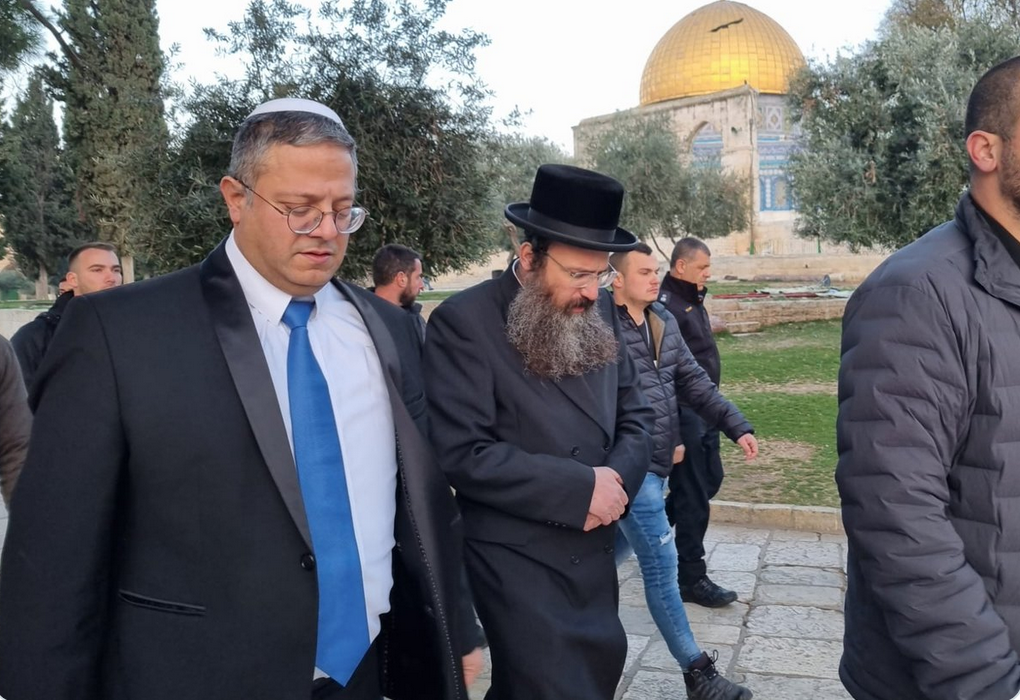Israel far-right minister enters Al-Aqsa in ‘provocation’
Palestinians and several Arab countries condemn Itamar Ben-Gvir’s visit, which they fear is aimed at changing the holy site’s status quo.

Saudi Arabia, the United Arab Emirates and Jordan have joined Palestinians in condemning a far-right Israeli minister’s brief visit to Al-Aqsa Mosque compound, with the Palestinian leadership calling the intrusion “an unprecedented provocation”.
Tuesday’s visit by Israel’s National Security Minister Itamar Ben-Gvir risks stoking tensions with Palestinians, with the Hamas group that governs the besieged Gaza Strip warning that such a move would cross a “red line”.
Jordan, Egypt and the UAE, which have peace treaties with Israel, have condemned what they called Ben-Gvir’s “storming” of Al-Aqsa. Amman summoned the Israeli ambassador and said the visit had violated international law and “the historic and legal status quo in Jerusalem”.
Saudi Arabia, with which Netanyahu wants to forge a peace deal, also criticised Ben-Gvir’s action. Turkey, which has recently ended a long-running diplomatic rift with Israel, condemned the visit as “provocative” as well.
What is the status of Al-Aqsa?
- The Al-Aqsa Mosque compound (also known as al-Haram al-Sharif by Muslims and the Temple Mount by Jews) is a wide, walled plaza in the heart of the Old City in occupied East Jerusalem. It incorporates the Al-Aqsa Mosque and the Dome of the Rock.
- It is considered holy by both Muslims and Jews and is a Palestinian national symbol.
- One of the walls of the compound, the Western Wall – also referred to as the Wailing Wall or the Buraq Wall – is a holy site for Jewish prayer. Jews pray undisturbed on the side of the wall that is outside the compound.
- Israel has occupied East Jerusalem since 1967. The occupation is illegal under international law.
- The compound has been managed continuously by Muslims, under a waqf (religious endowment), for hundreds of years.
- The Jordanian-funded waqf has continued to administer the site since 1967, while Israel has security control. Under a longstanding agreement, the status quo of the site only permits Muslim prayer, and visits from non-Muslims are only permitted at specific times.

